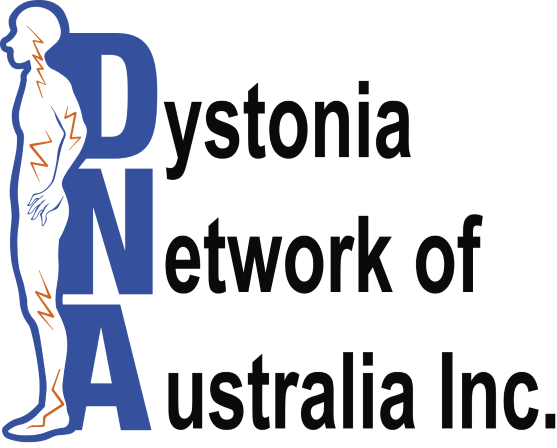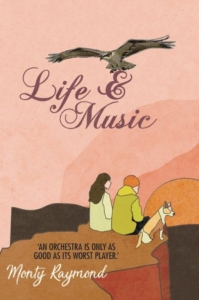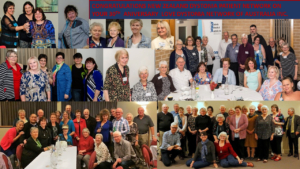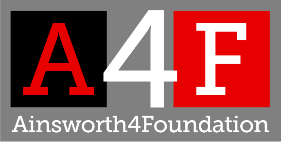2023 – Doctor with Musician’s Dystonia
In this article from September 2023 a doctor who is a flute player describes the impact of musician’s dystonia and treatments. DNA is providing a link to this article as it may be of interest to people with all forms of dystonia. We are not providing it as an endorsement of the Farias treatment. Read the article here.
2023 – ABC 7.30 Report story on Sydney trial for focal dystonia
On the 26th June 2023 the ABC 7.30 Report featured a story on a violinist who underwent MRI guided focused ultrasound (MRgFUS) for focal hand dystonia which was a success. Watch the story here.
DNA is now an Information Partner of Healthdirect Australia

On the 5th May 2023 DNA was approved as a Trusted Information Partner of Healthdirect Australia, the national virtual public health information service. Click here to view our profile page.
2022 – Fiction book based on the dystonia journey of one of our members
Very few fiction books have been written by or about people with dystonia. The following information has been provided by the author of the book ‘Life & Music’.
Monty Raymond’s new novel is available in paperback and eBook at Dystonia: Monty Raymond or you could ask your local library to order it in and help spread awareness of dystonia. A portion of profits from sales is being donated to dystonia research and support. Follow donations on the ‘Corgipaw Films and Books’ Facebook page.
When Cecelia, a strong-willed, solo orchestral musician, experiences a strange twist of her head while performing in a concert, her first instinct is to tell no-one. When it happens again and she can no longer play, she finally admits to her sweet, introspective husband, Sebastian, that something is happening. Her doctor diagnoses her symptoms as a mental health disorder, which divides Cecelia’s friends and colleagues. As disability takes over Cecelia’s life, and her financial situation deteriorates, Sebastian must rise to the challenge as her carer, but, facing the loss of his dreams to become a screenwriter, he walks out. A new diagnosis brings hope of treatment for Cecelia, when a neurologist tells her she has dystonia, a permanent movement disorder, but suspicion lingers amongst her colleagues. Told that her condition means she’ll never play music again, let alone perform a much anticipated concert with her idol, Luciano Pavarotti, Cecelia is forced into the fight of her life, as she tries to save face and save everything she has ever loved.
A feature length screenplay of the story, Out of Tune: Out of Time, is currently available for production.
Further information can be found on the ‘Corgipaw Films and Books’ Facebook page.
Please note DNA is providing the information above purely as a potential resource for people with dystonia.
2022 – 30 year anniversary of New Zealand Dystonia Patient Network
2022 – Clinical trials in USA of longer lasting botulinum toxin
Research is being carried out in the United States into a longer lasting formula of botulinum toxin A which lasts from five to six months as opposed to three months with current treatments. Read about it here.
2021 – The Advocate Podcast
As part of 2021 Dystonia Awareness Month, DNA was asked to participate in a podcast with The Advocate to raise awareness of dystonia and our activities. The Advocate is an online media service which is dedicated to promoting the activities of not-for-profit organisations and charities. Our Vice-President Denise Duclos was interviewed by podcast producer Carla Wijaya about Dystonia, DNA and supporting people with Dystonia.
Our deepest appreciation to the Advocate
2021 – Proposed Funding for Movement Disorder Allied Health NSW
The NSW Liberal Party announced that $8.6 Million would made available in the 2021-2022 financial year to fund positions to help people with Parkinson’s disease and movement disorders. This will be rolled out over 4 years. DNA wrote to the NSW Health Minister to ensure that people with Dystonia, the third most common neurological movement disorder, would benefit from this initiative. We have been involved in some meetings with NSW Health and are awaiting a status update from them about the initiative. Please note that this initiative only relates to NSW.
2021 – Dystonia Network of Australia Dystonia YouTube channel
Our new YouTube channel commenced on the 6th May 2021. A number of videos are ready for viewing and more will be added in the future. Please view and leave comments if you’d like.
2020 – Dystonia Awareness Week – The Hills Radio Interview Adelaide
Adelaide Hills Radio as well as some other country radio stations have been running our ad for dystonia awareness week. Chris Carpenter, General Manager of Adelaide Hills Radio, interviewed Kerrie & Laraine on the 3rd September 2020 about Dystonia and DNA. Please excuse the audio glitches.
With Permission of The Hills Radio Adelaide
2019 – ABC Health Report on Dystonia
Dystonia Network of Australia Inc. (DNA) is thrilled to announce as part of the Dystonia Awareness week the segment on the ABC Health Report on Dystonia is now playing. DNA members Robyn and Paul are the patients who are telling their Dystonia stories and our DNA Advisory Board Members Associate Professor Victor Fung MDS Neurologist spoke on Botox and its effective treatment of Dystonia and how it works by altering messages from the brain, Doctor Stephen Tisch MDS Neurologist spoke about Movement Disorders and what they are, he also spoke on new MRI called a DTI which can show Dystonia the gapes in gene research, and how patients with the gene can sometimes have no symptoms and others without the gene can have the symptoms and finally how therapies are sometimes ahead of understanding conditions and Dr Lynley Bradnam Professor of Physiotherapy (NZ) spoke about Dystonia and what it is and different types of the condition also DBS surgery and how in the early days it was thought it was a hysterical condition and advances in imagery. The link to listen is here.
2019 – Brain Mapping study could pave way to treat neurological disorder
DNA member Dr Daniel Corp has led a research study at Deakin University that has discovered parts of the brain that may cause cervical dystonia and could pave the way for a non-invasive, targeted treatment. Read the Deakin University media release here.
2018 – First patient in southern hemisphere to undergo new non-invasive procedure for severe tremor
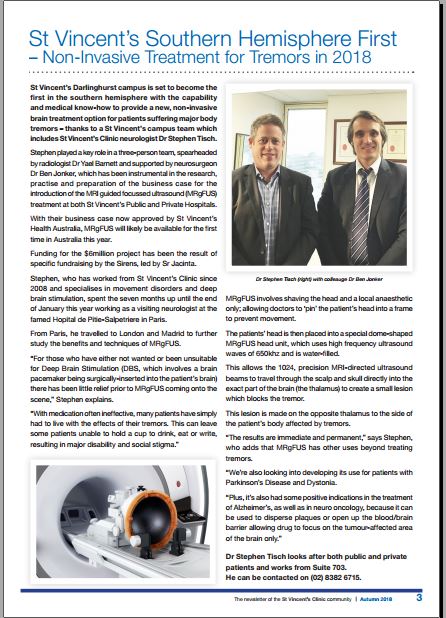
A Sydney nun has become the first person in the southern hemisphere to undergo a non-invasive treatment using MRI guided focussed ultrasound (MRgFUS) at St Vincent’s Hospital in Sydney. This was performed by Doctors Stephen Tisch and Ben Jonker. Read about it here on 9 News.
This article is reproduced with permission of St Vincent’s Hospital Sydney and Dr Stephen Tisch.
2014 – Dystonia Europe at Dystonia Patient Event, Melbourne
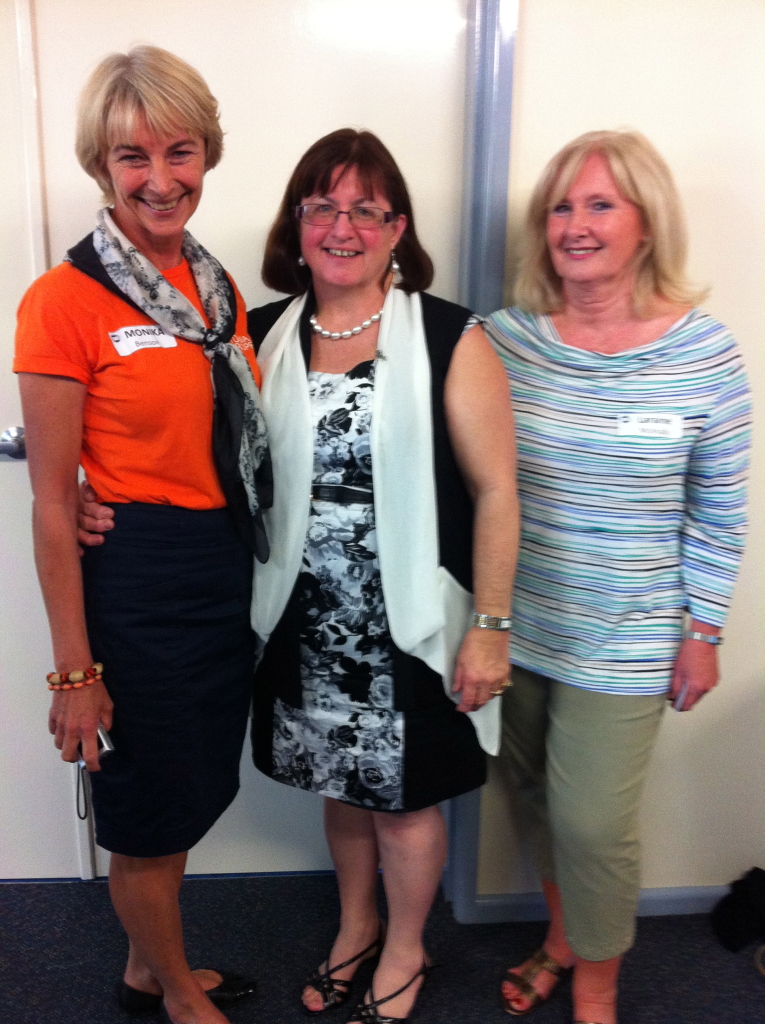
On the 11th January 2014 Dystonia Europe Executive Director Monika Benson attended a dystonia patient event held at the Cerebral Palsy Education Centre in Glen Waverley, Melbourne. Monika had travelled to Australia for her daughter’s graduation. About 50 people with dystonia and their family members participated and guest speakers included Monika (the work of Dystonia Europe), Dr Lynley Bradnam (transcranial magnetic stimulation for cervical dystonia), Kerrie Jackson and Laraine McAnally (founders of DNA), Lee Pagan (ADSG Facebook Group), and Suzanne Bayliss and Jan Hoffman (support groups). Thanks go to Lee Pagan, Hariklia Nguyen, Lisa McInnes, Sue Kennedy and Nadine Schnabel for their work in organising the event.
2013 – Non-invasive brain stimulation for Dystonia
Dr Lynley Bradnam was an Associate Professor of Physiotherapy at Flinders University. Her interest in dystonia began while she was studying for her PhD. At that time her interest lay in understanding the changes in the Bain that seemed to contribute to dystonia. Since arriving in Adelaide in 2011 Dr Bradnam has focused on dystonia, in particular the role of the cerebellum and whether non-invasive stimulation could be used as treatment. Her work has received two Brain Foundation Australia grants and was featured on the ABC.
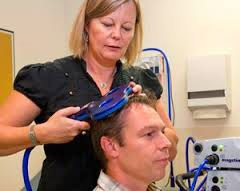
Recently Dr Bradnam has become interested in studying how cervical dystonia affects function, including vision, balance, walking and cognition. She developed a questionnaire to help identify if movement related fear is a feature of dystonia for some people. Dr Bradnam would like to see better education for physiotherapists to understand dystonia and offer effective and researched-based treatment interventions. She has recently been appointed as Professor of Physiotherapy, Graduate School of Health, University of Technology, Sydney. Read about Dr Bradnam’s work in an article in the Sydney Morning Herald here.
Page updated 13 November 2023
